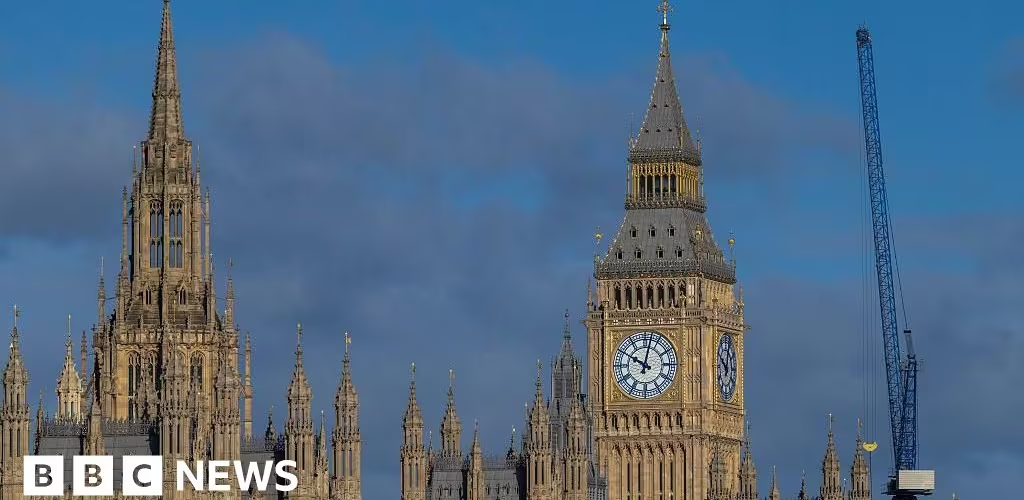Chris Mason: Is this what spying by China can look like?
BBC | 19.11.2025 12:01
When MPs, members of the House of Lords and their staff were warned about the threat from Chinese spies, in one office in Westminster, a quick check began.
Simon Whelband is a Conservative councillor and also works for the Conservative MP Neil O'Brien, who was sanctioned by China in 2021.
Simon went into his LinkedIn messages and there it was. A message from an account in the name of Shirly Shen sent some weeks earlier.
He hadn't responded to the unsolicited message and reported it to Parliament's security services. He was then advised to block the account.
The note comes across as pretty innocuous.
He said: "The message wasn't written in very good English, it was a message to say there was a job opportunity and was I interested, and to get in touch if I was.
"I've worked around Parliament for about 10 years now so I'm kind of used to this.
"But if you were more junior, you don't know what you're looking for.
"You might think it's a genuine offer that's made to you on LinkedIn, they might accept."
Whelband added that he thought it was becoming more common for those working in Parliament to be targeted by China.
"They have realised the way to get to Parliamentarians is through their staff... it's deeply worrying," he said.
And so, for the second time this autumn, Westminster is collectively wrestling with what to do about China.
The growing influence of this vast superpower is one of the two stand out global changes of the last 30 years, alongside the growth of the internet.
Some of the most acute challenges - or threats - from Beijing come when both of these mega-trends of the early 21st Century combine.
Senior figures in government are worried, but express their worry carefully in public. MPs outside of government are much more willing to be blunt.
Tuesday's debate in the Commons on this was an eye opener. The security minister Dan Jarvis was both circumspect in his language, but warm and accepting of the wide range of concerns expressed by MPs of multiple parties.
Among them:
- Concern that buses manufactured in China but driving on British streets might be equipped with a so-called "kill switch" which allows someone in China to press a button and disable the bus – potentially causing chaos
- Worries about vehicles used by the military that are made in China and might be mobile listening devices – to such an extent that military figures have been warned to watch what they are saying when they are on board in case China is listening
- Deep concern about China seeking planning permission for a huge new embassy in central London which critics say will be a spying centre and is located very close to sensitive data cables that serve the City of London
Last month, Parliament was digesting the collapse of a court case involving two men accused of spying for China, one of whom had worked in Westminster. Both men always denied any wrongdoing.
Now it is the warning that all MPs and members of the House of Lords have received from the security service MI5 that they might be Beijing's next target.
It says it has identified two LinkedIn profiles used by Chinese security services to act as "civilian recruitment headhunters", targeting individuals working in British politics to solicit "insider insights".
As Jarvis put it, China "has a low threshold for information it regards as valuable". This is because over time it builds up a wider picture by piecing together the morsels it may extract from a wide range of people.
Labour, since they won the general election, have attempted to warm up the UK's relationship with China.
The Chancellor Rachel Reeves has been to Beijing, as has the Business Secretary Peter Kyle, who was there in September within days of being appointed to the role. The most senior civil servant in the Foreign Office, Sir Olly Robbins, was there last month in the midst of all those headlines about the collapsed spying trial.
But there has long been a vociferous collection of China hawks in Parliament, who have long worried about what they see as a collective naivety about Beijing.
The question now is whether a moment like this, following MI5's intervention, persuades others to share their outlook.
The government insists its approach to China is "pragmatic": it regards working with Beijing as inevitable but insists it is "clear eyed" about the risks.
Will a growing number of MPs demand a more sceptical outlook?
As one put it, rather colourfully, "you can't reason with a tiger when your head is in its mouth".
China is a vast superpower that is at once essential yet awkward, unavoidable yet dangerous.
This the latest case study in those competing interests. There will be more to come.









